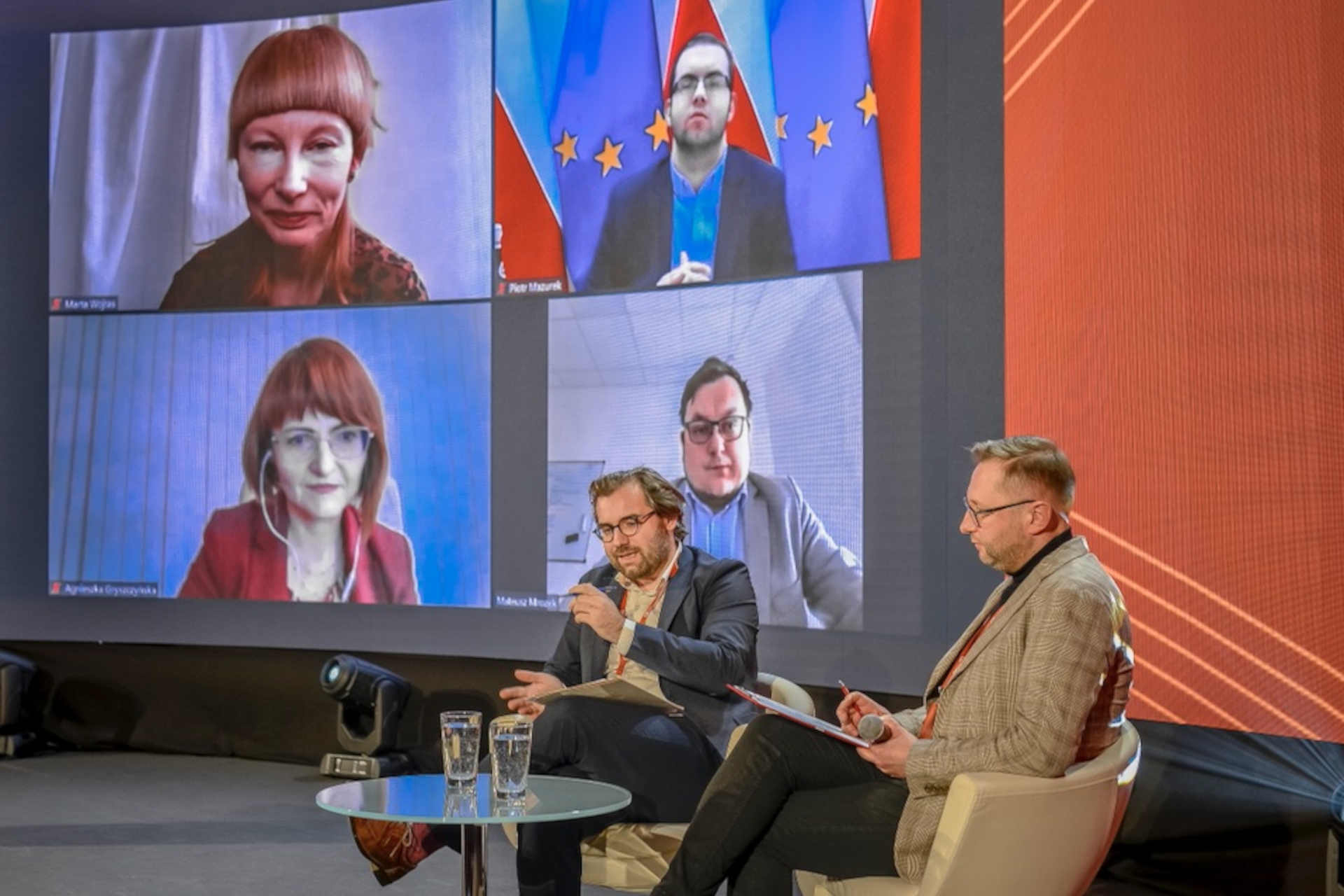Cybersecurity education must be present from an early age – stressed experts at CEE Edu Digital Summit

Today, children are exposed to technology long before they enter the education system. This is why it is so important that parents are the first cybersecurity teachers, said experts at the CEE Edu Digital Summit in Lublin. They pointed out adults themselves often have problems with staying safe in cyberspace. - If we invest in shaping cyber resilience, cyber hygiene of children, adults, parents, and teachers, we shall gain a lot from it – assessed Professor Agnieszka Gryszczyńska.
The CEE Edu Digital Summit is an event organised by CEE Digital Coalition and Digital Poland Association. It was held for the first time in Lublin and was dedicated to issues related to the digital transformation of education systems in Poland and the CEE region. Panel discussions addressed education about cybersecurity and vulnerability to online manipulation.
Discussants agreed that making children and young people aware of cybersecurity is a necessity. - Of course, the topic of cybersecurity itself should be explored at school. Elements of manipulation awereness should be taught at many different stages of education and gaining skills such as reading comprehension and searching for sources - assessed Mateusz Mrozek, Head of the Anti-Disinformation Unit at NASK. - However, pushing things onto institutions such as the school, the government, NASK, etc., is a half-measure – he added.
The issue of manipulation was raised by Prof. Agnieszka Gryszczyńska of the National Public Prosecutor's Office as well. She recalled that "not every misinformation (...) or misinterpretation constitutes a criminal act". She drew attention to phishing, a cyberfraud which is one of the most common digital crimes in Poland. - Most of these attacks are based on simple sociotechnics and the art of manipulating people into taking action or revealing confidential information. No advanced technical knowledge, hardware or malware is required for this – she noticed
- According to a Eurostat study, only 16% of Poles aged between 16 and 74 verify information found online. We do not have the ability to verify – said Prof. Gryszczynska. As she noted, children often have access to technology before they even learn to speak. - The first person who should provide education to a child is the parent. Handing electronic devices to a child occurs before the child enters the formal education system – the prosecutor stressed.
The huge role of parents in the digital education process
A representative of the non-governmental organisation Dajemy Dzieciom Siłę (Empowering Children Foundation), Marta Wojtas, also spoke about the role of parents. - A perennial problem is the large group of parents who are difficult to reach with anything, who do not participate in activities addressed to them, who are not interested in the topic. For such families, the school is the only place where education about cybersecurity can take place, she pointed out. - Education has to come from different directions. We have to try in every way so that it can be successful – she stated.
Mateusz Mrozek from NASK spoke out along the same line. - The interaction between class - teacher and parent is a very undervalued platform – he said and noted the overworking of teachers is often forgotten. - Nothing can replace a parent who can explain the world. But the parent also needs to understand what is going on – he added.
The discussion was summarised by Professor Agnieszka Gryszczyńska. - If we invest in shaping cyber-resilience, cyber-hygiene in children, adults, parents, and teachers - we shall gain a lot from it, she said. She also pointed to a number of measures that schools can implement. - Let's teach students how to build difficult passwords. Let's teach them how to use two-factor authentication. Let's hand out U2F keys to teachers, let them show them to the children: it's nothing that is very expensive, but it is the only real protection against phishing. Let's introduce two-factor authentication on students' school accounts, she listed. -Mundane technical solutions have a very big effect when it comes to improving cyber security – Professor Gryszczyńska concluded.